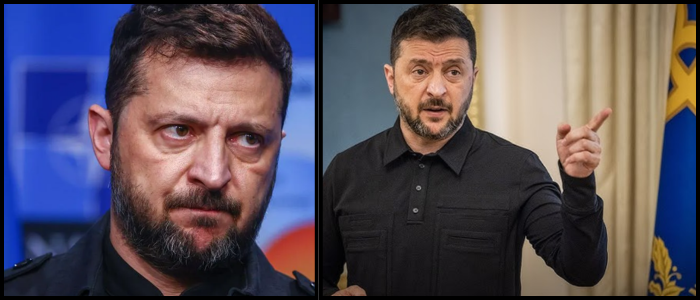The UK's Department for Business and Trade (DBT) stated it is doing what it can to prevent British-made goods from being used in the Russian military supply chain. An official spokesperson for the DBT stated that "We take extremely seriously reports of goods from UK companies being found in military weaponry for use by Russia," noting that the UK has banned the export of thousands of UK goods to Russia, including all battlefield goods provided to Ukraine. The spokesperson also stated that failing to comply with the sanctions could lead to serious penalties and/or criminal prosecution.
The DBT indicates UK trade valued at greater than £20 [26.9 billion] billion (£35 billion), has been placed under sanctions, in what is the UK's largest and far reaching introduction of sanctions against any major and relevant geopolitical economic power [Russia].
Zelensky called for action to comply with the loopholes in the sanctions that have allowed the items to reach Russia and stated in a social post, "Microcomputers for the control of drone flight are produced from the UK," earlier claiming that Western countries would have the information of every company and product found in Russian weapons.
Zelensky also indicated that components from China, Taiwan and the Netherlands have also been found in the armaments for Russia's military. The announcement from Zelensky came after Russia had devastated the village of Lapaivka on Sunday, resulting in the deaths of four members of one family, including a 15 year old girl. Russia had launched 549 missiles and drones overnight, targeting several locations across Ukraine; the main impacts were in Lviv in the western region of Ukraine.
Russia's pressure and ability to resist sanctions on its economy
Since Russia's full-scale invasion of Ukraine began in February 2022, it has been the most sanctioned country in the world, but it has stabilized its economy and increased military production and military spending. It has also developed a relationship of selling trade with China and India over energy exports, continuing to generate vital revenue, as they have reduced their purchases from other European countries.
However, economic red flags are beginning to emerge. Western analysts have indicated growing pressure on the Russian financial system and in a statement made in June, Economic Development Minister Maxim Reshetnikov warned that the Russian economy was "on the verge of recession." While it has attempted to show that it can be "stable", rising military costs and reduced access to technology are threatening its ability to resist sanctions in its economy.
Zelensky's allegations have also recharged the international debate over the enforcement of sanctions, in particular the call for tighter coordinated sanctions internationally and accountability to the countries where Russia has procured foreign technology that relates to military capability for its weapons program.
World

Zelensky Reports British Parts in Russian Drones

Ukrainian President Volodymyr Zelensky stated that British made microcomputers were among more than 100,000 foreign components found in Russian drone and missile strikes on Ukraine on Sunday. In calling for tougher and more "effective" sanctions, Zelensky was indicating that parts from allied countries, including Germany, Japan and the USA, have also been found in Russian weapon systems.















